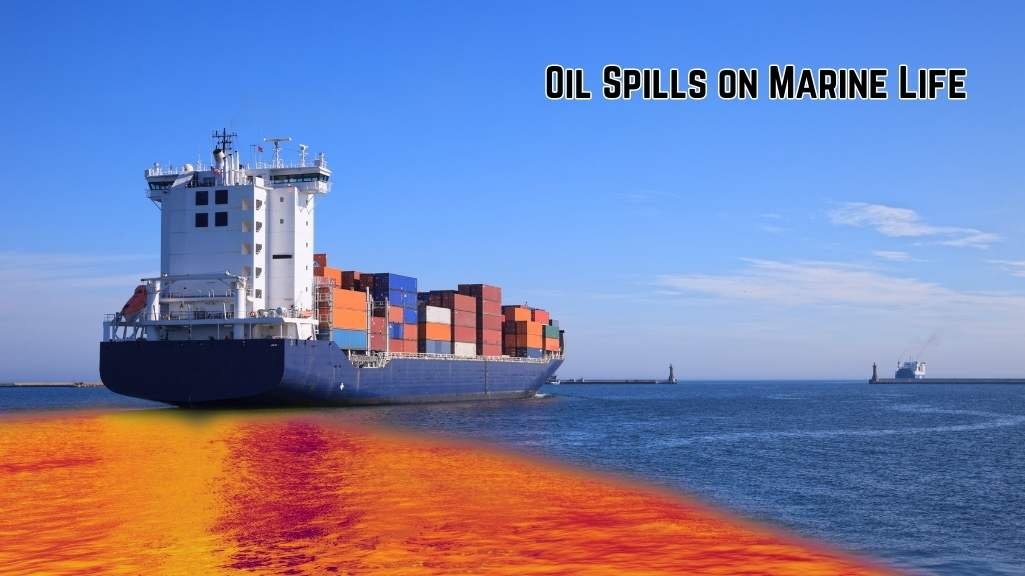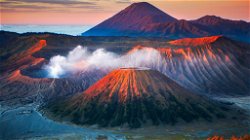Impact of Oil Spills on Marine Life: Causes, Effects, and Protection Methods
James Bond
. 2 min read
The accumulation of persistent and bioaccumulate components of oil in the tissue and bodies of marine life (fish) is the cause of the negative effects on marine life. These components, which are a concern for both environmentalists and developers, have the potential to induce a variety of health and reproductive problems, as well as mass mortality events within marine life in general. Those who consume tainted food that has been obtained from wild animals may be at an even greater risk of becoming poisoned or developing adverse effects as a result of being exposed to higher concentrations of pollutants than are found in the surrounding environment.

What Exactly is a Spill of Oil?
Any location where oil is used, obtained, or transported has the potential to experience an oil spill. However, the majority of incidents that come to mind when talking about oil spills are those that take place in bodies of water like the ocean. The actions of humans are the primary cause of oil spills. It is possible for oil to leak or spill from the tanker or ship that is carrying it as it is transported, particularly when the transportation takes place across bodies of water.
What Kind of Effects does Oil have on Marine Life?
Both the oil itself and the response and cleanup operations that follow an oil spill can have negative effects on the surrounding environment, particularly on the animals and plants. If responders to a spill have a better understanding of both types of impacts, they will be better able to mitigate the overall effects of the spill on ecological communities and assist those communities in recovering much more quickly.
1. The insulation capabilities of fur-bearing mammals, such as sea otters, and the water-repellency of a bird's feathers are both compromised when exposed to oil, leaving these animals vulnerable to the effects of the environment.
2. Young sea turtles are more likely to get caught in oil spills and mistake it for food when they do so. Oil is something that dolphins and whales can breathe in, which can have negative effects on their lungs, immune systems, and reproduction.
3. When trying to clean themselves, many different types of birds and animals accidentally consume oil, which can poison them.
4. Adult fish that have been subjected to oil may suffer from stunted growth, enlarged livers, altered heart and respiration rates, erosion of the fins, and impaired reproduction as a result of the exposure.
5. The inhalation of volatile chemicals, which are materials that are vaporized when oil floats on the surface, is a common occurrence among the animal species that are dependent on air for respiration.
Methods to Protect Marine Life from the Effects of an Oil Spill
1. Using Oil Booms
The utilization of oil booms is a method that is both straightforward and widely used for controlling oil spills. Booms used for containment have the function of acting as a barrier to prevent the oil from moving further afield or from floating away. Booms are constructed of three parts and float on the surface of the water.
2. Dispersants
Dispersants are chemical agents that help break up an oil slick into very small droplets, which then dilute throughout the water. These agents are similar to soaps and detergents in that they are used to clean things. Even though this does not remove the material that was spilled, it does provide some protection for sensitive habitats that were threatened by a surface slick.
Conclusion
In conclusion, oil spills have devastating effects on marine life, leading to health and reproductive problems, as well as mass mortality events. The accumulation of persistent and bioaccumulate components of oil in the tissue and bodies of marine life is the primary cause of these negative effects. People who consume tainted food obtained from wild animals are also at risk of being poisoned or developing adverse effects due to exposure to higher concentrations of pollutants. Understanding the impacts of oil spills and implementing methods to mitigate their effects are crucial to protecting marine life and ensuring ecological communities can recover as quickly as possible.
More Stories from
Eco-Friendly Practices: How Individuals and Businesses Can Make a Difference
Discover the Power of Eco-Friendly Practices: Learn how individuals and businesses can contribute to a greener world by adopting sustainable measures.
Say No to Plastic Bags: Embracing a Sustainable Future
This article sheds light on the environmental consequences and health implications of plastic bags while providing alternative solutions.
Unveiling India's Volcanic Secrets: A Geological Overview
Explore India's unique volcanic history and the enduring forces of nature that continue to captivate scientists and adventurers alike.
Zero-Waste Living: Practical Tips for Reducing Environmental Impact
Discover the power of zero-waste living as this article offers practical tips and actionable advice for reducing your environmental impact.
Biotechnology and the Future of Medicine: Advancements and Ethical Concerns
This article explores precision medicine's personalized treatments, the promise and ethical challenges of gene editing, the potential of artificial intelligence in healthcare, and the future of organ transplantation.










.png?width=40&aspect_ratio=1:1)


.png?width=40&aspect_ratio=1:1)